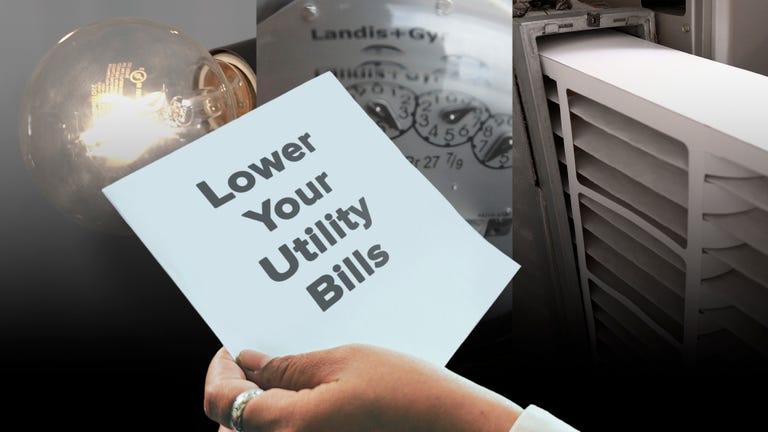They might look like benign appliances when sitting quietly on your counter or wall, but your TV, computer, printer, coffee maker and even your electric toothbrush could be actively costing you money while doing nothing. Several common household appliances will continue to drain electricity when plugged in, even if they’re not in use or powered on.

There’s a simple solution, though: Just unplug the appliances when you aren’t using them. According to the US Department of Energy, unplugging these devices could save the average household up to $100 a year.
Below, we’ll answer how much money unplugging home appliances can actually save you and whether the energy savings are worth you unplugging and replugging appliances each day. (To maximize your energy savings, we’ve also got tips on how to lower your water bill, the best temperature to set your thermostat to save money and the energy-efficient way to do laundry to cut utility costs.)
Can unplugging appliances actually save me money?
It seems counterintuitive to unplug appliances. After all, they’re off, so why would they be sucking up energy?
The fact is, your appliances actually still use energy even when they are turned off but still plugged in, according to Energy.gov. Whether the device is switched off or in standby mode, some of the worst offenders are:
- A device that may still use energy in the form of lights or other displays showing the device is off
- Computers that were simply put into sleep mode
- Chargers that still draw power even if the device is not connected
- Media players that continually draw power, especially ones that still might scan for updates in the background
- Phones with displays that show when not in active use, like cordless phones
- New smart home appliances like refrigerators, washers and dryers that have always-on displays, internet connectivity and electronic controls


Buying a smart plug can help you conserve energy by controlling the power on virtually any device you plug in. This plug from Leviton is CNET’s top pick.
Details
How can I optimize my standby power?
The first step is, of course, to unplug anything that is not actively in use or not used often. One example of devices that could easily be unplugged include TVs and set-top boxes in guest rooms. It’s also generally easy to unplug media players when not in use, like a radio or CD player. When you take your device off its charger, it can also help to get into the habit of unplugging that charger as well. You might also be surprised how many devices we have plugged in that we don’t even use anymore. Examples could include old wireless phones, old media players or lamps that are more decorative than functional.
However, unplugging and replugging in everything can get tedious, especially if your outlets are in hard-to-reach places. If the outlet is inaccessible, it will be hard to keep up. So you can also set up ways to make the process of cutting phantom load more automatic. You can plug devices into surge protectors. That way, one flick of a power switch button can turn off multiple devices. You can also get timers to plug devices into or smart plugs so that you can automate when the power is connected to a device. For instance, you might set the time for the TV’s power so it is only connected during peak use times like evenings or weekends.
You can also look into getting Energy Star products. Many of these products are rated to have lower standby power use than products that are not rated by Energy Star.
Find additional resources for saving electricity
As power bills get higher and more erratic over time, it’s more vital than ever to find ways to save on electric costs. For instance, in addition to unplugging the devices in the home, you can take a look at our guide about turning off lights when not in use. Another key way to affect your electric/heating bill for the better is to know the ideal temperature you should set for your home. You can also review our guide on quick tips for saving on your gas and electric bill, like turning down your water heater or changing your air filters.


